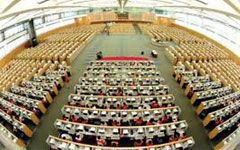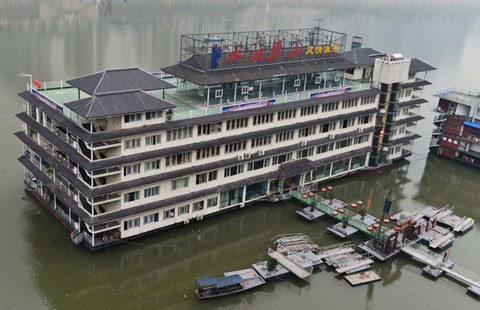State firm's delisting raises fairness question
(Xinhua) Updated: 2014-06-05 10:49BEIJING - As the closing bell rang in the Shanghai Stock Exchange on Wednesday, China's equity market witnessed the first delisting since reform of the delisting rules in 2012.
The removal of Nanjing Tanker Corp under the State-owned China Changjiang National Shipping (Group) Corp from the bourse came after it posted losses for four consecutive years. It is the first delisting ever of a state firm.
Share price of Nanjing Tanker closed flat at a junk price of 0.83 yuan before it will be officially delisted on Thursday.
 |
|
 |
Although delisting is common in the US and other equity markets, it is quite rare in China, where majority shareholders and local governments decide whether a company should be pulled from the market.
About 4,500 US companies have been delisted from the New York Stock Exchange since 1962, but only 78 Chinese companies have been ousted from Shanghai and Shenzhen stock exchanges since 2001 when China introduced the delisting rules, according to a study by Pi Haizhou, an independent financial commentator. That is almost 90 each year in the States as opposed to six or so each year in China.
"The delisting system of China's A-share markets is flawed," Pi wrote in his blog, saying the Nanjing Tanker's delisting deserves no applause as a market clean-up.
Under current rules, delisting focuses on financial reports -- those that make losses for three consecutive years face suspension. Stocks may be delisted if trading volume is too low or the share price falls below one yuan.
Xiao Gang, chairman of the China Securities Regulatory Commission (CSRC), said in January that the legal basis for delisting in cases such as "major violations" needs clarification. Delisting will become a regular occurrence and a market mechanism like the CSRC needs better delisting rules.
- Xi urges joint efforts in building Silk Road Economic Belt
- Why Australia praises expertise of Chinese developers
- Chinese water company to invest $1.6b in overseas markets
- Chinese stocks close higher Thursday
- Chinese lotteries to score during World Cup
- Shanghai to host intl pharmaceutical industry fair
- China to unveil petrochemistry development plan
- Chinese lottery firms hope to cash in on World Cup

















